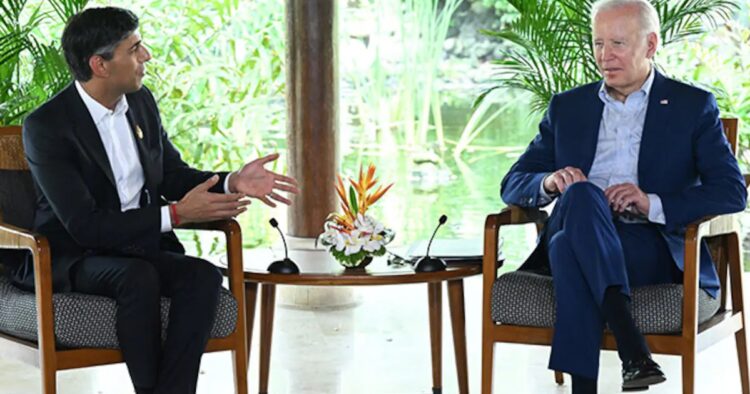In an effort to curb Houthi militants’ attacks in Yemen, the United States and the United Kingdom are exploring new approaches to escalate their campaign without triggering a broader war. The focus is on targeting Iranian resupplies to the Houthi rebels and considering more assertive pre-emptive strikes. The chaos in the Red Sea, responsible for handling about 12% of global trade, has escalated due to Houthi attacks on commercial ships in response to Israel’s actions in Gaza.
The ongoing Houthi attacks have resulted in increased insurance costs and concerns about inflation, as ships take longer and costlier routes around the southern tip of Africa. The proposed strategies aim to address these challenges but carry the risk of direct conflict with Iran, something President Joe Biden aims to avoid.
Despite previous US and UK strikes against the Houthis, the group’s determination and ability to target commercial shipping persist. The current deliberations involve finding ways to disrupt Iranian efforts to resupply the Houthis at sea, given the difficulty of severing land routes. Advocates for more aggressive action argue that Iran may be overextended in its support for the Houthis, making it an opportune time to act.
Recent evidence suggests a more assertive approach from the US and its allies. Last week, US forces seized Iranian-made missile components bound for the Houthis in the Arabian Sea, resulting in the loss of two Navy SEALs. Additionally, the US struck three anti-ship cruise missiles, indicating a shift in strategy.
Discussions have also taken place regarding whether current rules of engagement allow for the envisioned aggressive strikes. While some officials argue that existing authorities are sufficient, others question the need for potential policy changes.
The US administration believes that Iran’s actions have caused unease in Arab capitals, where leaders fear becoming targets. The Middle East and other countries are increasingly concerned about Iran’s actions and are collaborating at the United Nations and elsewhere to counter Tehran and its proxies.
Iran’s recent missile attacks on sites in Iraq and Pakistan have further increased tensions and raised the risk of broader regional conflict. Top Iraqi officials have publicly criticized Iran for its actions, creating a complex geopolitical situation in the region.
Addressing the developments at the World Economic Forum in Davos, US National Security Adviser Jake Sullivan emphasized that the US is not seeking regional conflict but reserves the right to take further action. The primary concern is preventing the Houthis from disrupting world trade through their attacks.

















Comments